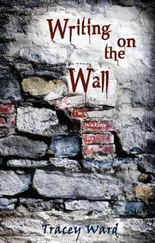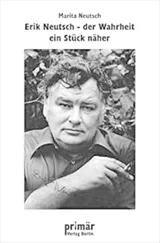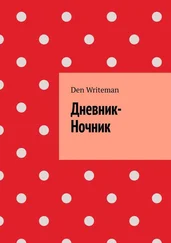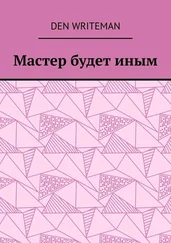One Sunday morning we had a very pleasant surprise. Uncle Ernest came to visit us on one of his leaves. What a fine figure of a man he cut in his navy uniform as he stood with his back to the fire, Vernon on his left and me on the other side! He spoke modestly of actions at sea in which he had taken part. Vernon and I drank in every word, watching him with admiring eyes. Obviously he couldn’t tell us what ship he was serving on or where any operations took place. In fact he was reluctant to answer all our many questions and it was only when he had left that I realised that we should have talked about something else. As it was Sunday we had Yorkshire pudding and onion gravy, but today we all had a smaller portion in order to heap his plate, as the dinner was now in his honour.
Needless to say, we were all in the war as well. Firewatchers were introduced and once a week, according to a roster, a few of us spent the night on the roof of the factory with sand and stirrup pumps, in order to deal with any incendiary bombs released by the Luftwaffe. The Rutland Mill was situated on the edge of the moors, bordered by grassland, so at night on the factory roof we were surrounded by impenetrable blackness; the millions of stars above were the only visible proof that we were not upside down. The nearest target for the German bombers was the city of Manchester, ten miles to the south; and Liverpool was another danger area, much further away to the north-west. In all the time of our firewatches no one was called upon to put out an incendiary, no one even saw an incendiary and to be brutally honest none of us ever heard an aircraft, friend or foe—in fact Churchill and his war cabinet would have been much safer holding counsel in the boardroom of the Rutland Mill.
It was now clear that I would soon be called up to lend my shoulder to the wheel (what a useless choice of words). My mate Bobby Hall and I discussed which service we could volunteer for. We were both physically fit from our camping excursions and a brief dallying in Health and Strength, in which we had practised co-ordination of muscles, centralisation of the abdominal wall, pectorals, latissimus dorsi—we knew it all, almost as if we’d been preparing ourselves for the service of King and country. Bobby made up his mind to volunteer for the navy, but I had other plans: my ambition was to train as a fighter pilot. I desperately wanted to be one of the few who were owed so much by so many, according to Churchill, and that is why I would opt for the Royal Air Force—that is, if the war was still on.
How I came to regret that last thought about the duration of the war! On 25 November 1941 the flagship HMS Barham was torpedoed off the coast of Egypt, and five minutes later she capsized, exploded and sank. The War Office despatched over eight hundred telegrams expressing condolences to parents, wives or any next of kin. Granddad Sykes opened the buff-coloured envelope with dread in his heart. ‘We regret to inform you that your son…’ Now as for so many other grieving families the war had laid its clammy hands on 36 Leslie Street, and never again would we see Uncle Ernest, but to this day I can still visualise him standing with his back to the fire in the warm aroma of roast lamb.
As I sat in my storeroom one day, gazing at the blank whitewashed wall, an idea began to form. I took a handful of coloured chalks and began to sketch a flight sergeant pilot looking up into the sky. It was life sized from the waist up, with wings above his left breast pocket and three stripes on his upper arm topped by a crown. It wasn’t bad—in fact people began to come into the storeroom on some pretext or other in order to see the sketch. The huge expanse of whitewashed wall was inviting and in a short time I’d sketched the head of the mule overlooker. His round, white, podgy face dominated by spectacles wasn’t too difficult. More people came in and chuckled as they recognised the expressionless face.
Elated by my success, I added other bosses and even the secretary of the mill, my first boss, as I had an inexhaustible supply of crayons of many colours. The whole of the hierarchy was now on my wall, head-on or in profile, smiling or glowering, everyone recognisable. Word soon spread and each came into view the portraits and sheepishly give their own visage a cursory glance, and they came back again to examine their faces more closely when they thought I wasn’t looking. It wasn’t a storeroom any more; it was the portrait gallery of the Rutland Mill.
However, one face was missing: that autocratic phissog of the manager. There was an ideal space in the middle of his workforce, a perfect placing; and more than that, whereas the others were life size the manager, as befitting his rank, would be twice life size. I hadn’t seen him since the bucket episode but he was an easy target. Some days later I was standing halfway up my ladder, shading in the wispy, white hair of his head, when there was a commotion outside the door. I was too wrapped up in my art to take notice, but then the door burst open and one of the workers in the ware-house crashed in, in a muck sweat, saw me up the ladders and said, ‘There’s three lorryloads stacked up waiting to be offloaded.’ Turning, he was about to dash back when he stopped suddenly. He turned round and for the first time he saw that the man holding the ladder steady was the manager.
‘Oh, I didn’t see you, sir,’ he said.
The manager, with his face sideways, so that I could sketch his profile, and without moving his lips, ordered the man to find somebody else to work the hoist.
The portraits remained long after I had left to serve my country and although the inside of the mill was painted twice a year, one wall remained inviolate. It was never painted over and when the mill finally closed in 1963 the flight sergeant, my first sketch, was still staring into the sky.
On or about my eighteenth birthday I left home to join the Royal Air Force, taking with me a carrier bag containing shaving kit, soap and a handkerchief, which for the few early years of my life had been pinned to the front of my jersey but had been hardly used when my sleeve was available. In addition I had a bag of Mint Imperials for the journey and half a crown for emergencies. I walked the five or six hundred yards from home until I reached the Methodist Chapel; then I stopped and looked back to 36 Leslie Street, just one of a row of ordinary houses, overlooked on the right by Ward Street Central School, with Ward Street on the left, all surrounding two acres of wasteland fondly known as the Mucky Broos, and at the far end of Ward Street, Featherstall Road. I swallowed a lump of nostalgia in my throat. It wasn’t exactly the New Jerusalem, but it had been my own secure little world for seventeen years.
At Oldham Central station I am the only occupant of the windswept platform. A porter emerges from a door, a half-eaten sandwich in his hand. He takes out a huge pocket watch and looks down the line. Then he sees me and obviously comes to the conclusion that helping me on to the train with my carrier bag wouldn’t warrant a tip and he disappears inside again to finish off his breakfast. Turning, I examine the Nestlé’s chocolate machine but as I feel for some coppers a strident bell announces that a train is due, and at that moment, chugging asthmatically, it comes round a bend and squeals to a halt in the station. No one alights and I am the only passenger to get on. The guard’s piercing whistle brings my head out of the window in time to see him wave his green flag before adroitly nipping back into his compartment, and with a hoot of indifference the train leaves Oldham, bearing me to the beginning of a new life in the Royal Air Force, cue music, go lights, stand by curtain. Every now and again I indulge myself in a spot of melodramatics, and believe me, there isn’t a dry eye in the house—all, of course, in my imagination, which explains my sometimes vacuous expression.
Читать дальше












